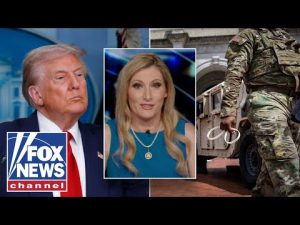In recent days, tensions have flared between government officials over issues surrounding vaccine mandates. The discussion reached a boiling point during a Senate hearing with HHS Secretary RFK Jr., who faced off against Senator Elizabeth Warren. The topic of the debate? The COVID vaccine and the freedom individuals have—or don’t have—to make their own decisions about it.
RFK Jr. appears to be holding the line on a measured approach to vaccine recommendations. He pointed out that he never promised to endorse any product without clear indication, subtly highlighting Senator Warren’s connections to pharmaceutical companies. Meanwhile, the state of Florida, under the guidance of its Surgeon General, is making headlines by dropping all childhood vaccine mandates. This new move emphasizes the state’s dedication to parental rights and informed consent, allowing families more say in the health decisions affecting their children.
The underlying theme here is about choice. It’s about the right of parents to decide what their children put into their bodies without government mandates hanging over their heads. Critics argue that removing such mandates could compromise the safety of immunocompromised children. Yet, this development signals a resurgence in the idea of vaccine freedom, propelled by a growing distrust in public health narratives that were inconsistent and sometimes misleading throughout the pandemic.
The backdrop of this dialogue is a country divided over public health policies, with some blue states like California, Oregon, Washington, and Hawaii banding together in a “health alliance” to establish their own vaccine guidelines. This alliance seems more like a symbolic gesture than a practical one. It’s reminiscent of high school cliques forming alliances against “outsiders,” rather than a serious attempt to address public health issues with the complexity and nuance they deserve.
This scenario highlights a broader cultural clash. On one hand, parents and individuals seeking autonomy over health decisions, fueled by past government overreach. On the other, a segment of the populace clamoring for federally mandated guidelines to ensure collective safety. It also underscores why many conservatives still reel from the confusion stewed by public health officials during the pandemic—a confusion that played a big role in shuffling populations to states like Florida, seeking both literal and ideological sunshine.
As we wade deeper into this debate, the challenge remains to distinguish between vaccines with proven effectiveness and those hastily rolled out. With the public’s trust already strained, pushing through mandates without open discussion and transparency is unlikely to do any favors. Common sense suggests a middle ground that respects personal freedom while safeguarding public health—indeed, an area ripe for collaboration rather than further division.







